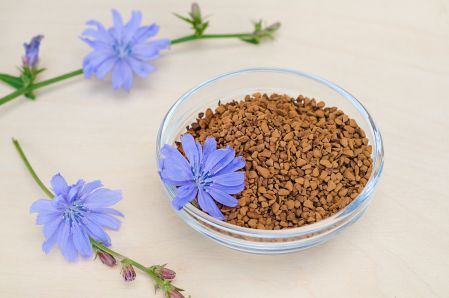Coffee is a popular beverage, prepared from roasted coffee beans. It is derived from trees of coffea genus, which belongs to rubiaceae family. It has been traditionally used for centuries especially for inhibiting laziness, but it also shows several health benefits.
Nutritional composition
- Coffee does not contain significant amount of carbohydrate, protein and fat hence does not provide much calorie
- It contains various trace elements like potassium, manganese, iron, calcium, phosphorus, chromium, magnesium and sodium
- It also contains several vitamins, such as riboflavin, niacin and pantothenic acid
- Coffee is a polyphenol rich beverage, which is composed of several bioactive micronutrients, that include, caffeine, phenolic acid, chlorogenic acid, diterpenes and rigonelline
Recent experiments on coffee
Spent coffee ground and its health benefits
- Spent coffee ground is the residue obtained after processing of coffee (brewing process)
- SCG is considered as one of the most significant source of nutraceutical substances as it contains high amount of phenolic compound, dietary fibre, amino acids, fatty acids, polysaccharides, minerals, melanoidins and antioxidants. It can be also enriched with several nutrients by using scientific techniques
- Recent researches have shown that the byproduct or residual product of coffee can be utilized as effective functional ingredients for food industries and for medical purposes also. The nutrient components of SCG are related with providing several health benefits and especially help to prevent cardiovascular disease, gastrointestinal diseases and cancers (Salazar‐López et al., 2020)

Effect of dark roast coffee on DNA
- Recent studies and researches have shown that consumption of dark roast coffee is related with reducing the damages of DNA in both sexes (male and female)
- According to the experimental research, one group of cases and one group of controls have taken with both genders. At first session only water has given to both groups and in second session 500ml of dark roast coffee has given to cases, whereas 500ml of simple water has given to the controls. Blood tests have been carried out of both groups (through single cell gel electrophoresis) after second session and it has seen that individual who consume dark roast coffee show less DNA damages than others (Tran A, 2019)
Role of isoflavones and lignans component of coffee on health
- Several researches have shown that coffee contains too some extent of isoflavones and lignans, but they have significant health benefits (Navarini et al., 2019)
- Isoflavones of coffee are associated with enhancing protein synthesis, hormonal metabolism, cell proliferation, intracellular enzyme activity and angiogenesis
- Whereas lignan component of coffee acts as strong antioxidant and especially helps to prevent oxidation of LDL

Health benefits

Role on nervous system
- It has seen that consumption of coffee is related with improving the brain functions
- After consumption of coffee, the caffeine content gets absorbed into blood through intestinal epithelial cell. Then it is transported to brain through blood, where it blocks adenosine (an inhibitory neurotransmitter) and helps to enhance the functionality of nervous system
- It acts as a potent stimulant for the brain
- It also helps to improve memory, vigilance and mood
Role on performance
- It helps to increase energy level within body by enhancing the breaking down of fat molecules and making free fatty acids available as fuel
- The caffeine content of coffee is also responsible for increasing the secretion of epinephrine (a hormone), that helps to prepare the body for physical exertion
- It has seen that consumption of coffee helps to enhance the ability of physical performance by about 11%
Role on mental health
- Consumption of coffee is related with decreasing anxiety and depression
- It helps to improve general mental functions and helps to improve the quality of life
Role on fat metabolism
- Caffeine content of coffee is responsible for increasing the rate of fat oxidation that produce acetyl CoA which in later produce energy (ATP) through TCA cycle and electron transport chain
- It helps to increase the catabolic rate of the body by enhancing calorie expenditure that helps to prevent the development of positive energy balance within body as well as helps to reduce fat storage

Role on life expectancy
- Consumption of coffee is related with decreasing morbidity and mortality rate and helps to improve overall health status
- It has seen that individual who consume coffee have lesser risk of premature death
Recommended dose
Daily consumption of 400mg of caffeine is considered as safe for humans, which is equivalent to 4 cups of coffee per day.
Coffee and diseases
Coffee and cardiovascular diseases
- Caffeine, phenolic compound and antioxidant components of coffee are associated with preventing the prevalence of atherosclerosis (by regulating LDL and HDL level)
- It helps to reduce the prevalence of inflammatory events of heart like coronary artery disease, thrombosis, clot formation within blood vessels and angina pectoris hence reduces the prevalence of cardiovascular diseases
- It also helps to reduce the risk of strokes or heart attacks
Coffee and neurological disorders
- It helps to decrease the progression of Parkinson’s disease and Alzheimer disease
- It also helps to prevent dementia by improving functionality of central and peripheral nervous system

Coffee and diabetes mellitus
- Coffee helps to reduce the concentration of blood sugar by enhancing insulin sensitivity
- It mainly helps to improves the symptoms of diabetes mellitus (Type 2)
Coffee and cancers
- The antioxidant property of caffeine is associated with reducing the susceptibility of developing cancers
- It helps to suppress the growth of malignant cells and prevents their metastasis
- It has seen that coffee has significant role on reducing the prevalence of liver cancers and colorectal cancers
Coffee and degenerative diseases
- The antioxidant contents of coffee help to reduce the oxidative damages of the body caused by free radicals and ROS
- It helps to reduce the concentration of free radicals and regulates ROS which is related with protecting the body and reduces the risk of developing degenerative diseases
Coffee and obesity
- Consumption of coffee is associated with increasing metabolism that helps to prevent obesity
- It also helps to prevent fat accumulation within body
Coffee and cirrhosis of liver
- It has seen that coffee helps to promote hepatic health
- It helps to prevent fatty infiltration of liver and hence associated with reducing the risk of developing liver cirrhosis

Risk factors
- Coffee contains caffeine and consuming coffee more than 6 cups a day may develop caffeinism. Caffeinism is a condition characterized by anxiety, insomnia, restlessness and nervousness
- Consuming unfiltered coffee is associated with increasing the concentration of LDL and triglyceride, which in later develop atherosclerosis that increases the risk of cardiovascular disease
- It is better not to consume more than 2 cups of coffee per day during pregnancy otherwise it would cause miscarriages, given birth to preterm infants or low birth weight infants. It is also applicable for lactating women otherwise it may develop irritabilities in the digestive tract of infants and causes sleeping problems
- Children should avoid caffeine consumption
- Consumption of coffee more than 5 cups may cause irritable bowel syndrome, diarrhea, nausea and vomiting
- Excessive caffeine also increases urinary calcium excretion and leads to osteoporosis in later life

Source:
Agarwal, S.K., 2020. Coffee: A Therapeutic Beverage. Drug Discovery, 14(33), pp.57-60.
Navarini, L., Colomban, S., Caprioli, G. and Sagratini, G., 2019. Potential Effects of Coffee Isoflavones and Lignans on Health. In Coffee (pp. 416-431).
Nieber, K., 2017. The impact of coffee on health. Planta medica, 83(16), pp.1256-1263.
O'Keefe, J.H., DiNicolantonio, J.J. and Lavie, C.J., 2018. Coffee for cardioprotection and longevity. Progress in cardiovascular diseases, 61(1), pp.38-42.
Salazar‐López, N.J., López‐Rodríguez, C.V., Hernández‐Montoya, D.A. and Campos‐Vega, R., 2020. Health Benefits of Spent Coffee Grounds. Food Wastes and By‐products: Nutraceutical and Health Potential, pp.327-351.
Shah, S. and Kumar, A., 2020. Coffee: Constituents and Health Benefits. Biotechnology Journal International, pp.22-38.
Tran, A., 2019. Potential Health Benefits of Dark Roast Coffee on DNA. Microreviews in Cell and Molecular Biology, 5(1).
Wachamo, H.L., 2017. Review on health benefit and risk of coffee consumption. Medicinal & Aromatic Plants, 6(4), pp.2167-0412.



